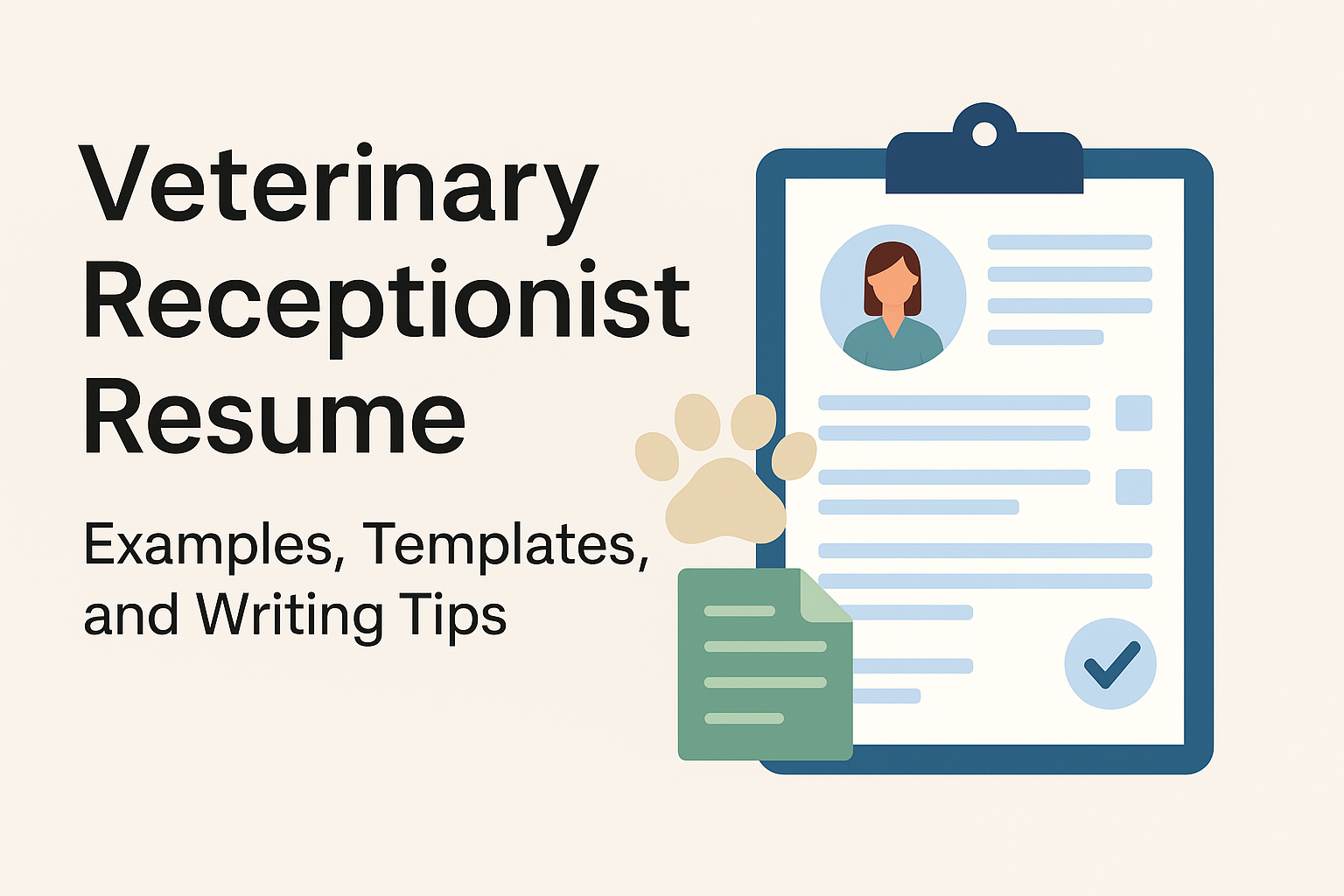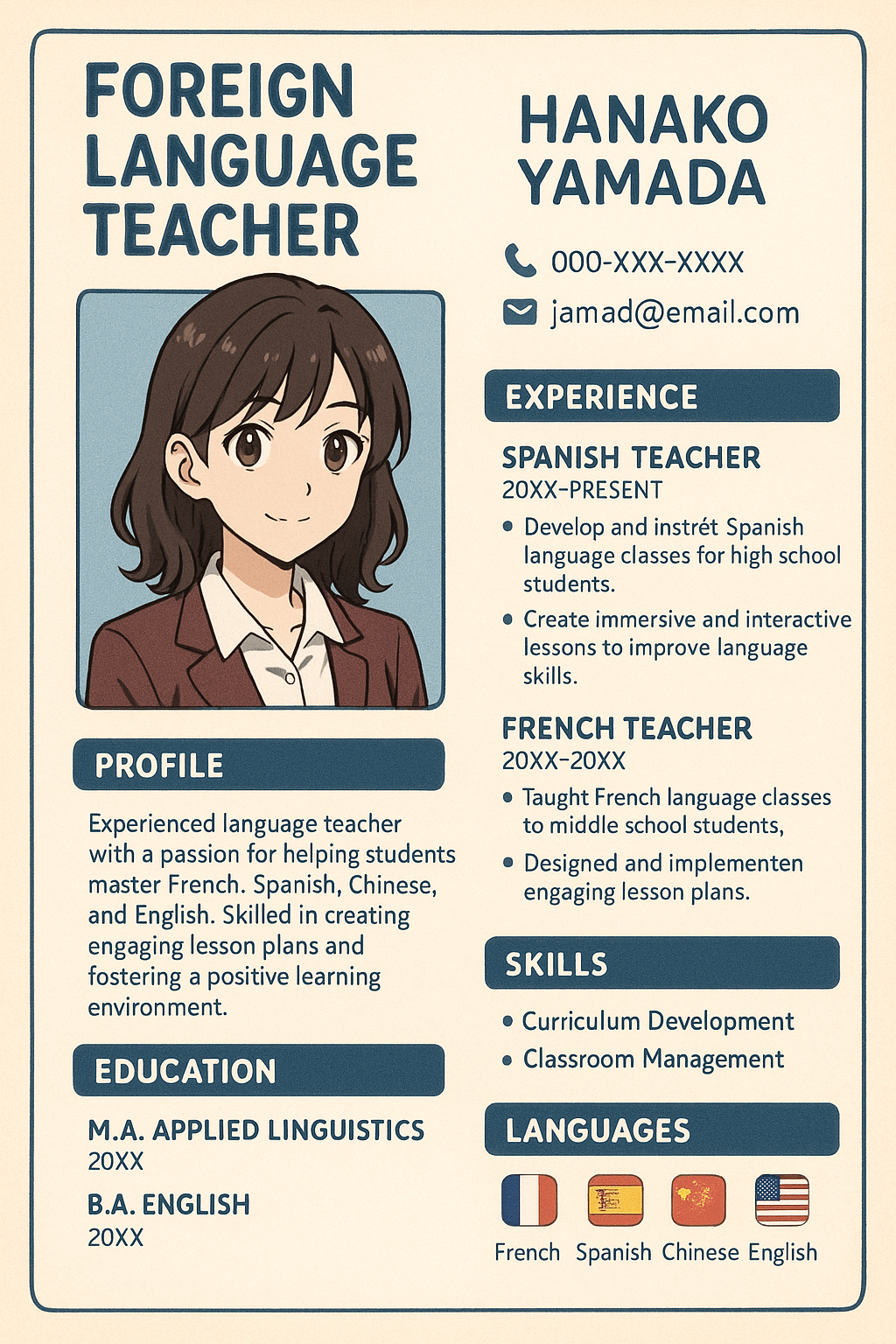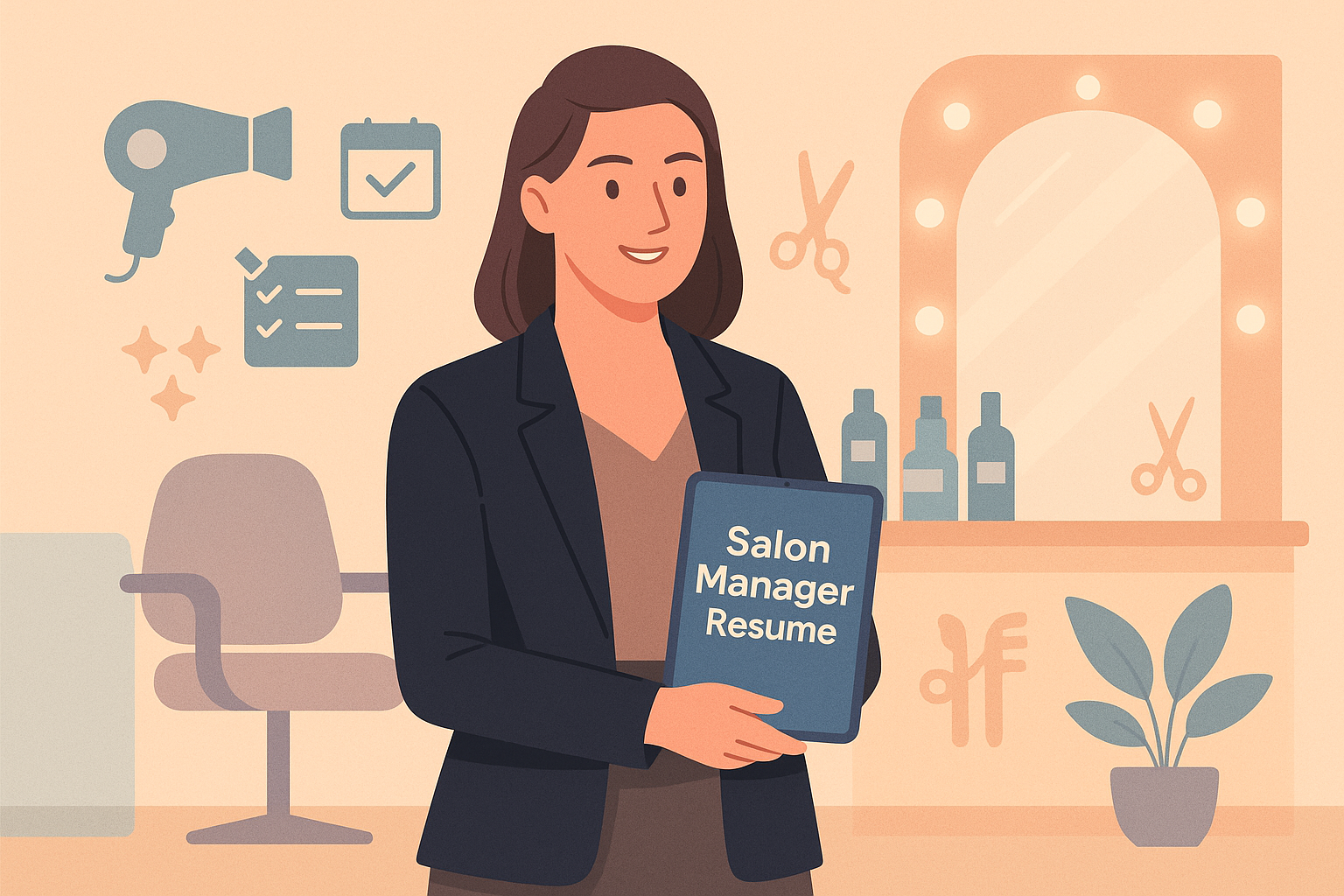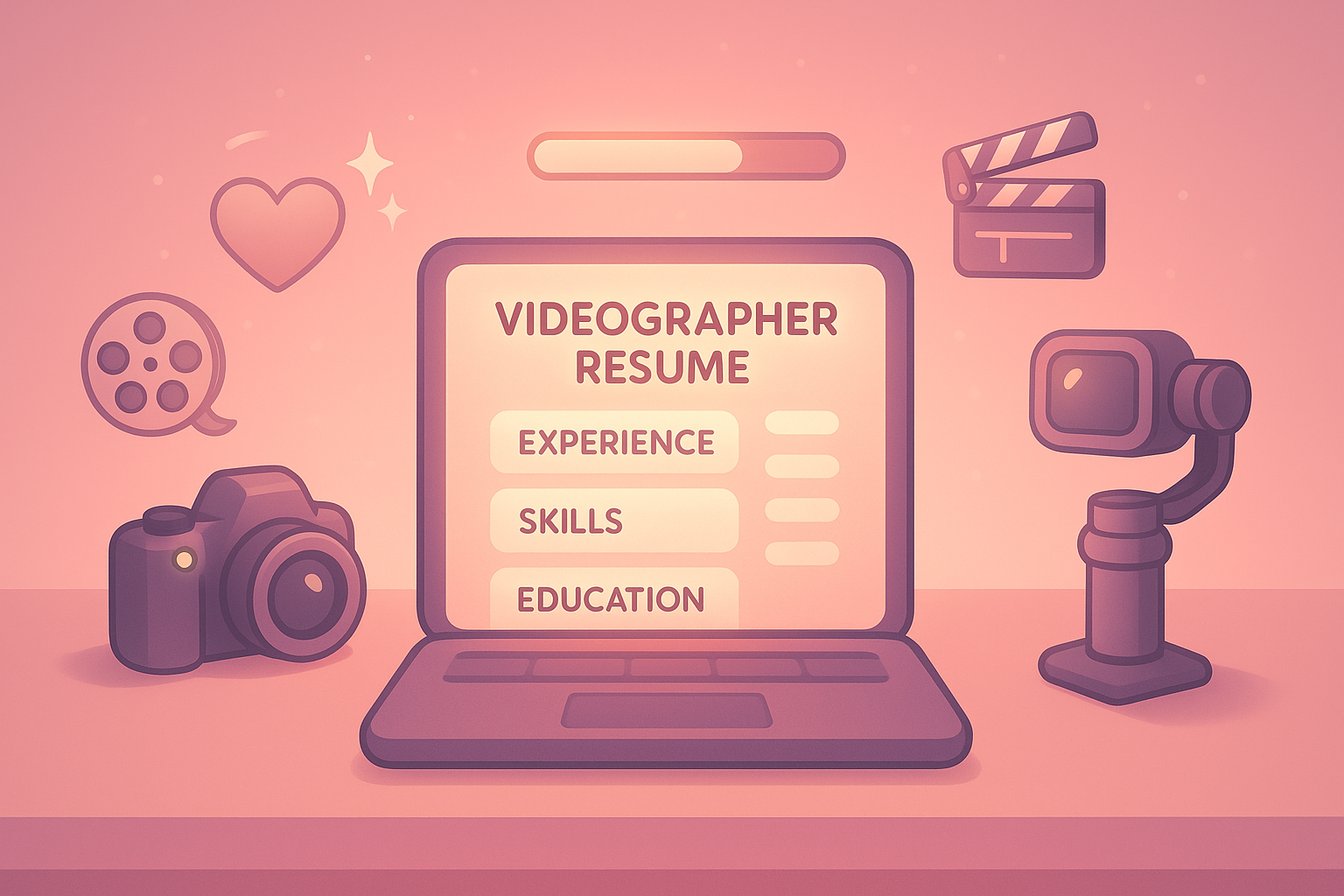In the competitive field of dentistry, a standout resume can make all the difference in landing your dream job. Our collection of resume examples for Dentist positions is designed to equip you with the tools necessary to showcase your skills, qualifications, and unique experiences. Whether you’re a seasoned professional or just starting your career, these examples will guide you in crafting a compelling resume that captures the attention of hiring managers and helps you secure your next opportunity.
Dentist Resume Examples – Free Download
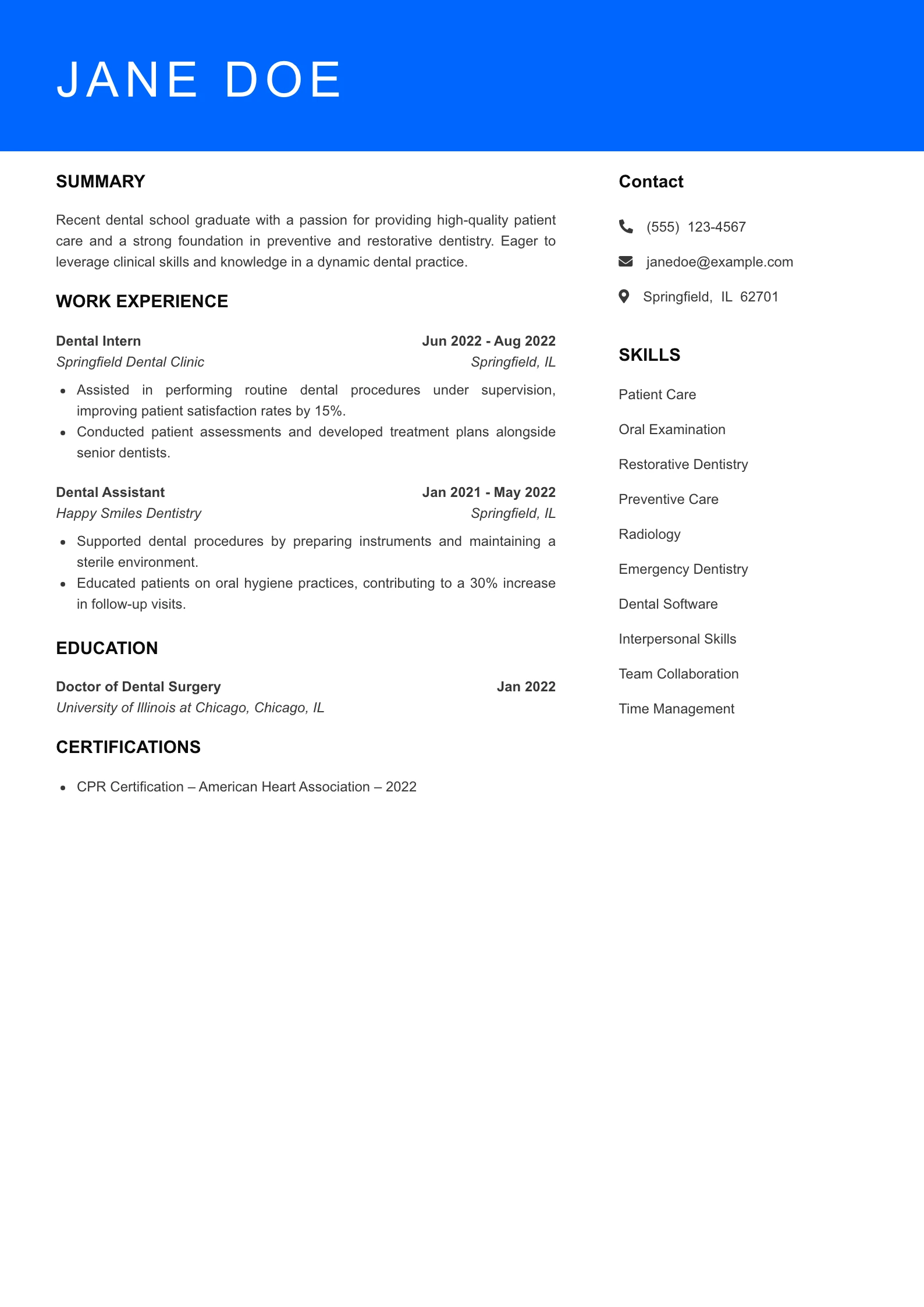

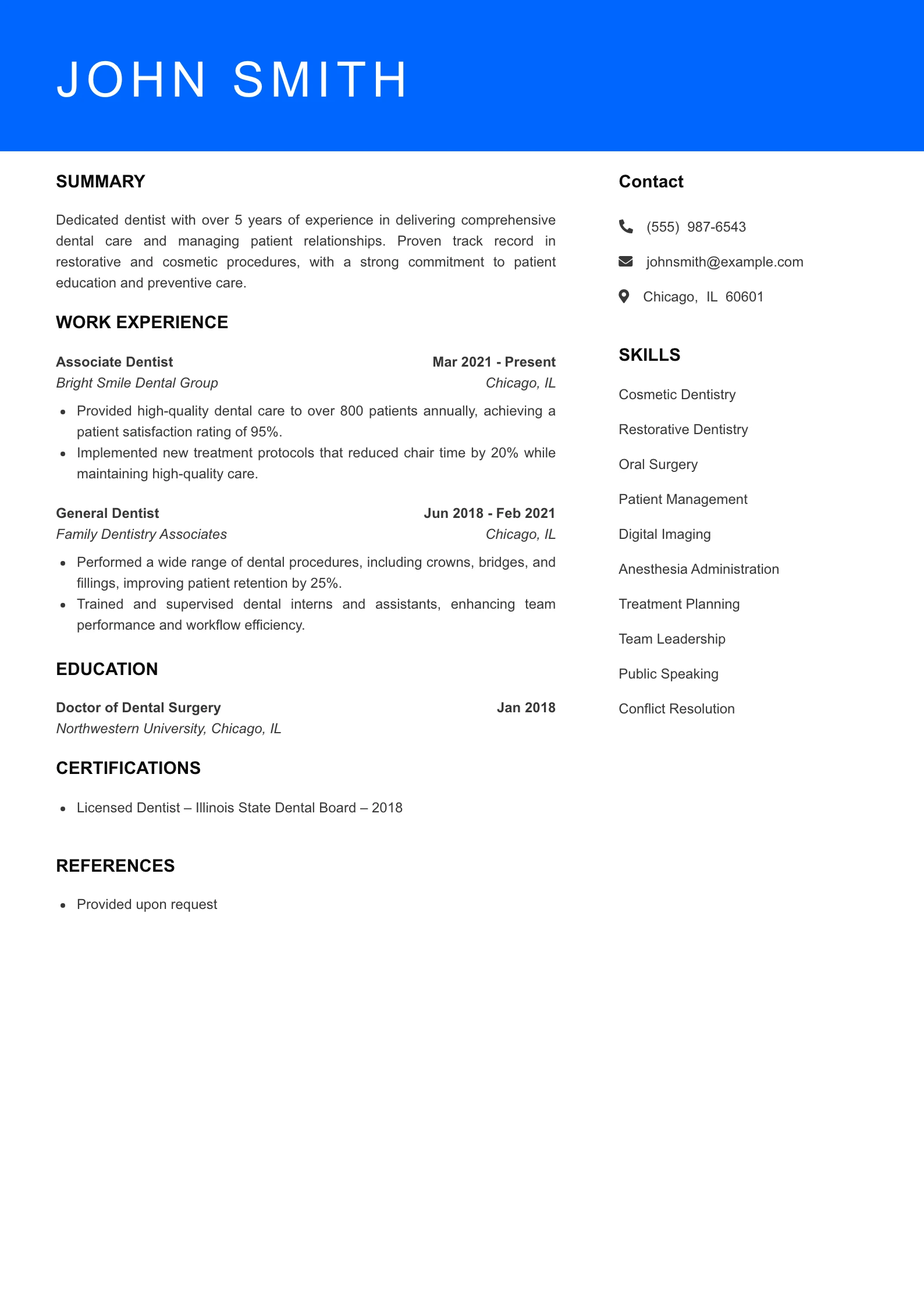
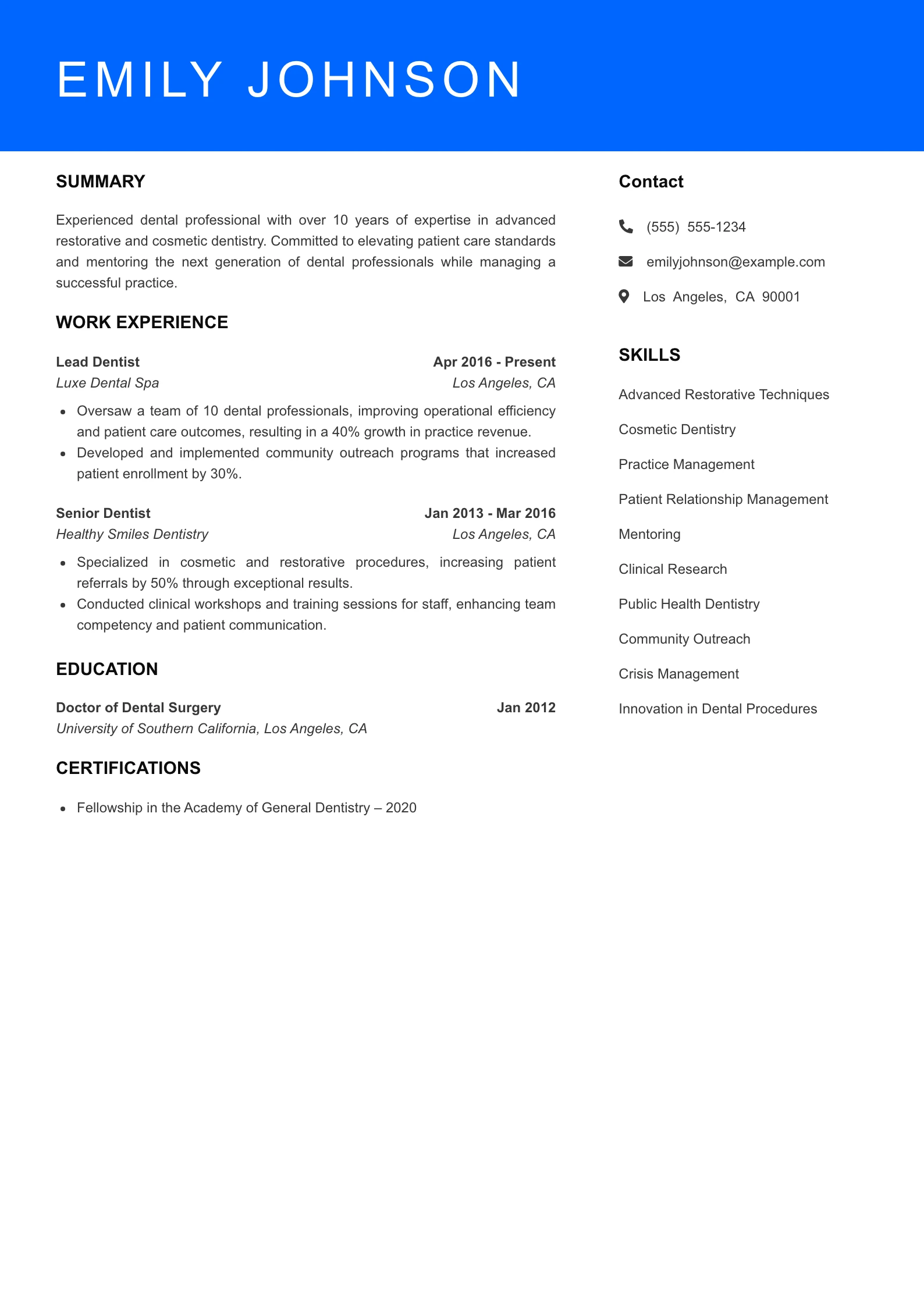
Dentist Resume Examples
Entry Level Dentist Resume Example
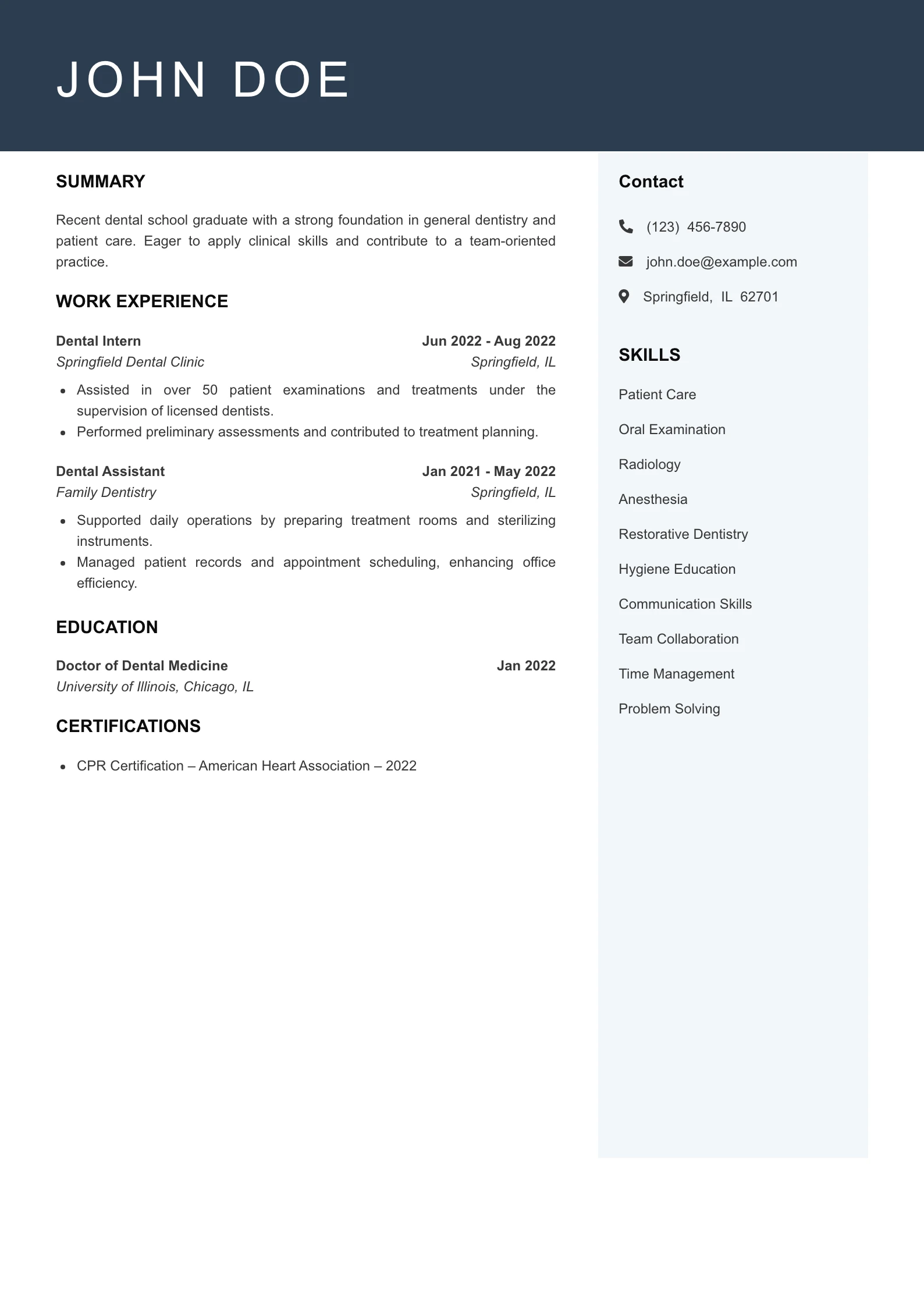
Why This Resume Works
- The summary is clear and concise, effectively highlighting John Doe’s recent graduation and eagerness to apply his clinical skills in a team-oriented environment, which sets the right tone for entry-level positions.
- The skills section is relevant and comprehensive, showcasing a mix of technical and soft skills that are essential for a dental professional, making him a strong candidate for entry-level roles.
- The work history includes impactful experiences, with specific accomplishments such as assisting in patient examinations and contributing to treatment planning, which demonstrate hands-on experience and the ability to work in a clinical setting.
- The job fit is appropriate for an entry-level position, as the resume reflects recent education and relevant internships, indicating readiness to transition into a professional role in dentistry.
- The overall clarity and tone of the resume maintain a professional standard, using straightforward language that effectively communicates qualifications and experiences without unnecessary jargon.
Mid Level Dentist Resume Example
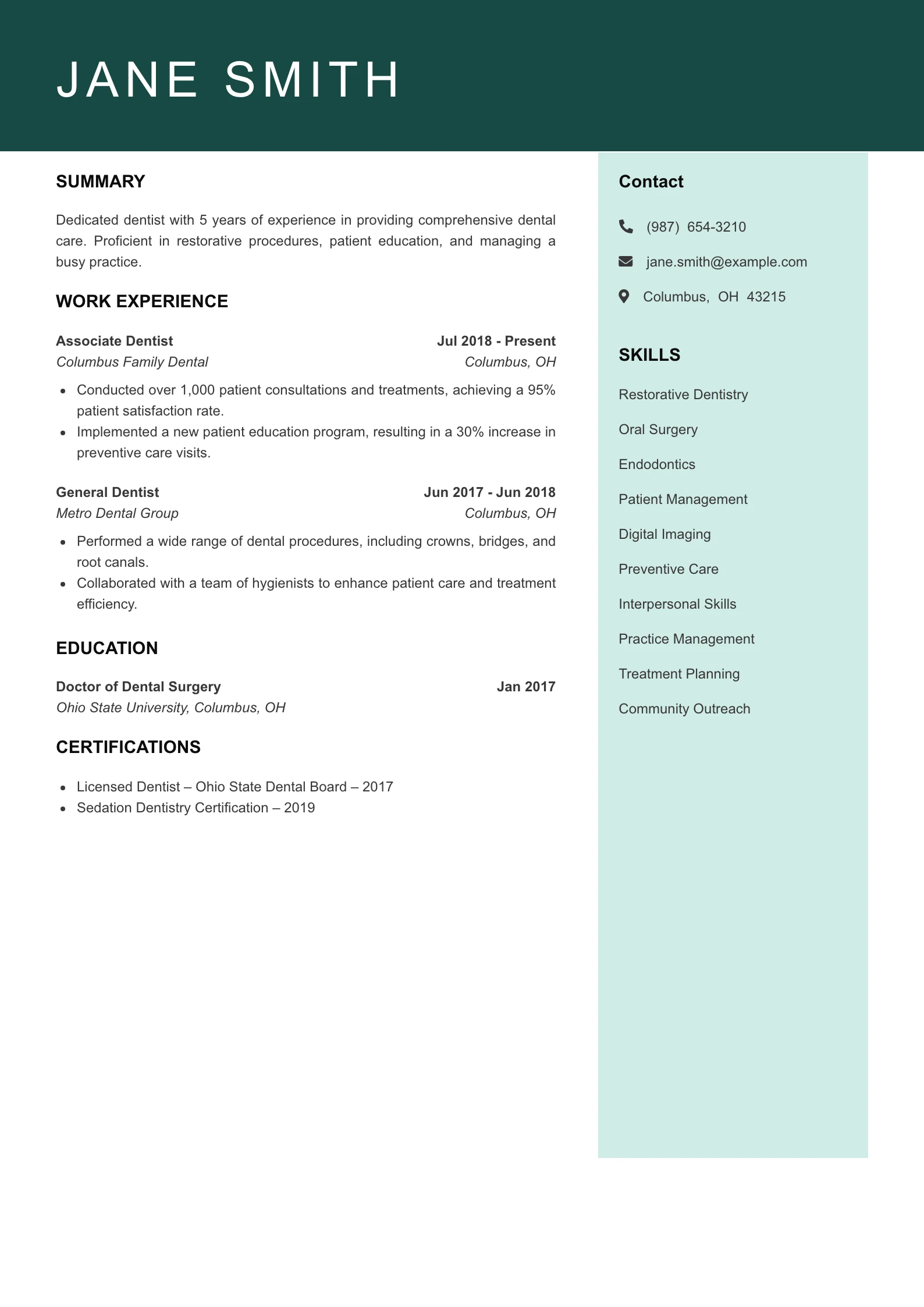
Why This Resume Works
- The summary clearly outlines Jane’s professional focus and experience, effectively positioning her as a dedicated dentist with relevant expertise in patient care and practice management.
- A diverse set of relevant skills is highlighted, showcasing her proficiency in both clinical procedures and essential soft skills, which are critical for patient interaction and practice success.
- The work history includes quantifiable achievements, such as a 95% patient satisfaction rate and a 30% increase in preventive care visits, demonstrating her impact and effectiveness in previous roles.
- Jane’s experience as an Associate Dentist and General Dentist indicates she is well-suited for a mid-level position, with a solid foundation to advance in her career.
- The tone of the resume is professional and confident, using industry-specific language that resonates with hiring managers in the dental field.
Senior Level Dentist Resume Example
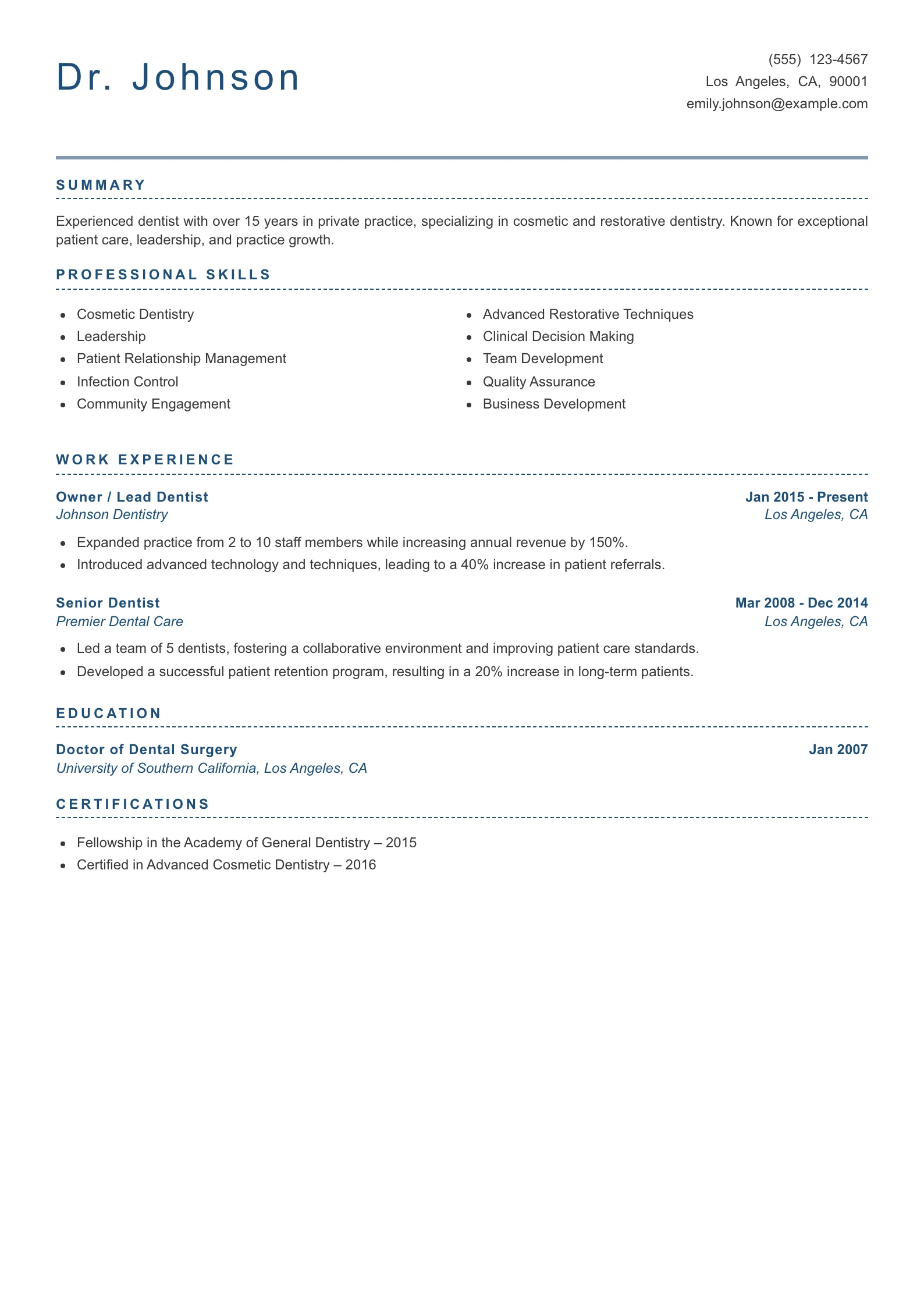
Why This Resume Works
- The summary clearly outlines Dr. Johnson’s extensive experience and specialization, positioning her as a leader in her field, which is crucial for attracting the right opportunities.
- Relevant skills are well-articulated, showcasing a mix of clinical expertise and leadership abilities that align with the demands of a managerial role.
- The work history highlights impactful achievements, such as significant revenue growth and staff expansion, demonstrating Dr. Johnson’s effectiveness as a practice owner and leader.
- The resume reflects a senior-level fit, showcasing not only clinical proficiency but also substantial experience in management and business development.
- Clarity and tone are professional and confident, conveying a strong sense of capability and dedication to patient care and practice success.
How to Craft a Strong Dentist Resume
Creating a well-crafted resume is crucial for dentists seeking to make a lasting impression in the competitive job market. Hiring managers prioritize resumes that effectively showcase relevant experience, clinical skills, and professional demeanor. This guide will help you highlight your strengths and present your qualifications in the best light possible.
Summary Statement
A strong summary statement is essential for a dentist’s resume as it serves as the first impression for potential employers. This section should succinctly encapsulate your experience level, areas of specialization, key soft skills, and any relevant certifications. A well-written summary not only grabs attention but also sets the tone for the rest of your resume.
When composing your summary, aim for a confident and tailored tone that focuses on results. Highlight your unique selling points and relevant achievements that align with the position you’re applying for.
Motivated recent dental graduate with clinical experience in restorative procedures and patient management, eager to provide compassionate care in a community-focused practice.
Mid-Level:
Dedicated Dentist with over 6 years of experience in general dentistry, specializing in cosmetic procedures and patient education, committed to enhancing patient experiences through quality care.
Skills & Qualifications
In the field of dentistry, both core and soft skills are vital to convey in your resume. Core skills typically include technical proficiencies such as dental procedures, patient assessments, and knowledge of dental software. Soft skills, on the other hand, encompass communication, empathy, and collaboration, which are equally important for effective patient care.
To identify the right skills to highlight, carefully analyze job descriptions for common terms and qualifications. Many employers use Applicant Tracking Systems (ATS) that scan resumes for specific keywords, so it’s crucial to include relevant skills that align with the job requirements.
- Restorative dentistry
- Patient management
- Cosmetic procedures
- Oral health education
- Digital X-rays
Top ATS Keywords for Dentist
Work History
When detailing your work history, focus on achievements that demonstrate your expertise in patient care, metrics, and any leadership roles held. Utilizing a reverse-chronological format is recommended, making it easy for hiring managers to track your career progression.
Quantified bullet points are particularly impactful, as they provide tangible evidence of your contributions. For instance, instead of stating “handled patient consultations,” you could say “conducted over 500 patient consultations leading to a 30% increase in patient retention.”
Dental Intern, Smile Bright Dental Clinic, Chicago, IL, May 2022 – Aug 2022
– Assisted in routine dental examinations and cleanings
– Documented patient histories and treatment plans
– Educated patients on oral hygiene best practices
Mid-Level:
General Dentist, Family Dental Health, Los Angeles, CA, Jan 2018 – Present
– Managed a diverse patient base with a focus on preventive care
– Implemented a new patient tracking system, improving follow-up rates by 25%
– Conducted over 1,000 successful cosmetic dental procedures
Education
A strong educational background is a cornerstone for any dentist’s resume. Commonly, a Doctor of Dental Surgery (DDS) or Doctor of Medicine in Dentistry (DMD) is expected. It’s also beneficial to list any relevant certifications or specialized training.
When formatting your education section, clearly indicate your degree, school name, location, and graduation year. This helps to create a clean and professional appearance that hiring managers appreciate.
Degree, School Name, City, State, Graduation Year
Example:
DDS, University of Southern California, Los Angeles, CA, 2017
Additional Sections
Consider including optional sections that can enhance your resume, such as Certifications, Languages, and Awards. For dentists, relevant certifications might include Advanced Cardiac Life Support (ACLS) or specialty training certifications.
When formatting certifications, clearly state the certification title, the issuing organization, and the year obtained. This allows hiring managers to quickly gauge your qualifications.
- Infection Control Certification – CDC – 2023
- Advanced Cardiac Life Support (ACLS) – American Heart Association – 2022
Do’s and Don’ts
To conclude, here are some practical tips for crafting an effective dentist resume:
Do:
- Tailor your resume for ATS compatibility.
- Highlight the impact of your achievements.
- Use industry-specific terminology.
Don’t:
- Use generic statements that lack specificity.
- Neglect the importance of soft skills.
- Overuse buzzwords that may dilute your message.



